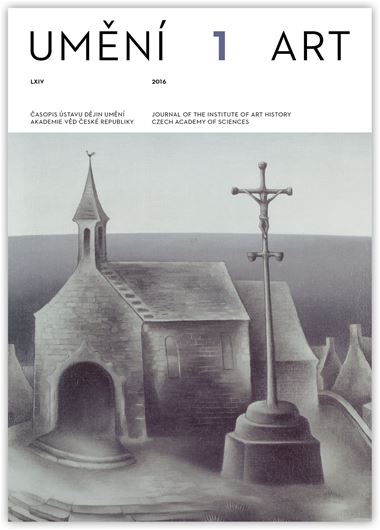Ladislav Kesner
Against the Affectless Iconology of Modern Art
The affectivity of works of art and the affective response to them remain a difficult subject for art history and theory. Among the key issues for art history and theory are questions such as: What constitutes the affectivity of the image? What role has the beholder´s affective response in the experience of a painting or sculpture, and how is the affective dimension activated in the hermeneutical act of viewing and understanding? And, finally, how is the emotional effect of the art work to be related to the causal account of its making, or, what is the place of affective response in the interpretation of a work of art? The essay focuses on these issues by considering a few micro case studies through the prism of the emerging theory of affective response to images. The essay is written as an extended argument against some recent ‘turn against affect’ views in art history and theory and against ‘affectless iconology’ – an interpretive practice which overlooks the affectivity of the work of art and/or denies it any place in the interpretation. The case studies, all concerned with figural work made in the period 1910–1912, analyse several distinct scenarios of relation between the affective response and the meaning (or intention) of the work in question. They demonstrate how literary and other cultural associations the works possess are grounded in and/or are accessible through the beholder’s affective response in multiple ways.
Full-text in the Digital Library of the Czech Academy of Sciences:
https://kramerius.lib.cas.cz/uuid/uuid:61cc7729-ebc2-490c-aad2-ed455756c06f
< back

